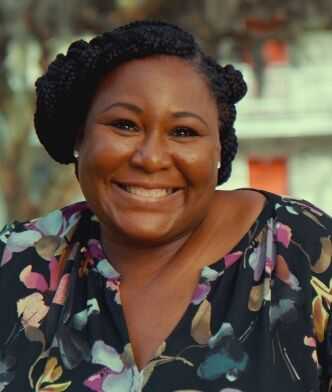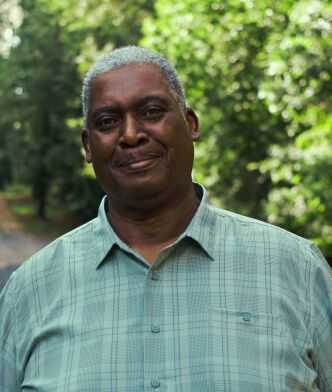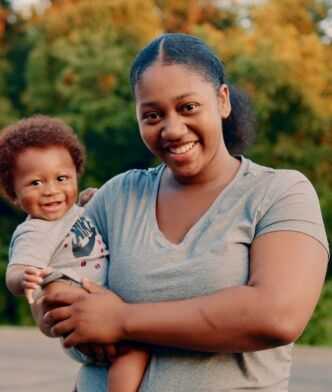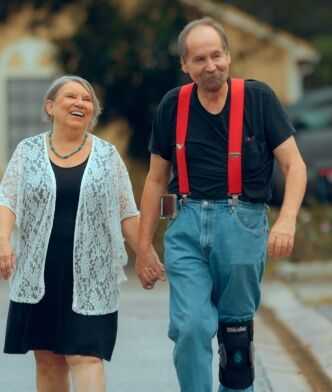Who Are the Groups at Risk of Slips, Trips, and Falls?
Who Are the Groups at Risk of Slips, Trips, and Falls?
- The Fee Is Free Unless You Win®.
- America's Largest Injury Law Firm™
- Protecting Families Since 1988
- 20 Billion+ Won
- 1,000+ Lawyers Nationwide
Free Case Evaluation
Porter Ranch Gas Leak
Jacob T. Rodgers v. City of Gainesville D/B/A Gainesville Regional Utilities
Estate of Frank Townsend v. RJ Reynolds, et al.
Morgan Stanley Data Security Litigation
Stephen Davis v. Levon Clark, Ricardo Williams, Marty Grifka and Derek Pak
McAdams v. Monier Lifetile, LLC
Coleman v. Martinez
Gold v. Lumber Liquidators
Clemmons, Patrick
Brink v. Ruiz

The attorneys featured above are licensed in Florida. For a full list of attorneys in your state please visit our attorney page.
Who Are the Groups at Risk of Slips, Trips, and Falls?
One of the scariest things about slipping, tripping, or falling is that it can happen to any one of us at any time. In the blink of an eye, an individual can be left with devastating injuries that will undoubtedly impact their ability to lead a normal life while they recover. Still, some victims can be left with injuries that can last a lifetime, like traumatic brain injuries and spinal cord damage. For others, slip and fall accidents can even result in death.
What's more, the pain and suffering endured by victims of these nasty accidents are coupled with unexpected medical bills and other financial losses. Missed work and medical costs can quickly spiral out of control and create oppressive financial burdens. If this situation sounds familiar, you may be researching how slip-and-fall lawyers can help recover compensation
Morgan and Morgan Law Firm has been advocating for victims of accidents commonly known as slip and falls or trip and falls for more than 35 years. Suppose we can find that your accident took place on someone else's property because of negligence on behalf of the property owner or possessor. In that case, you may be eligible to receive payment for your injuries and other losses. Let's look at some groups that are more likely at risk for slips, trips, and falls.
Get answers to commonly asked questions about our legal services and learn how we may assist you with your case.
Morgan & Morgan
Are Older Adults More at Risk for Slip and Fall Injuries?
Every year, millions of older adults (people 65 and older) fall and sustain injuries. Sadly, the statistics show that one out of every four older adults falls every year, and falling once doubles the chances of falling again. Still, many won't report it to receive medical care. Three hundred thousand older adults are hospitalized each year because of hip fractures which are very dangerous because of the complications tied to this kind of injury.
While older adults may have physiological factors that may increase the likelihood of a fall, like bodily weakness, lowered visual capacity, and even side effects from medication, hazards in the walkway increase the probability of a fall. When they do fall, the injuries are often more significant. Older adults are also more likely to use assistive devices such as walkers or canes, which can get tangled up in hazards.
A substantial number of older adults sustain slip, trip, and fall injuries in nursing homes and assisted living facilities that have environmental hazards, many of which are in their bathrooms. For example, slippery tubs and shower surfaces that lack grab bars would be hazardous for an older adult. As the owner of a nursing home facility, it would be incumbent upon them to ensure their elderly residents have safety features installed for known dangers. Likewise, the owner would be required to ensure pathways remain clear of tripping hazards and floors are never left slick from spills or waxing.
Whenever a property owner fails in their duty of care to ensure others won't come to harm on their property, a premises liability claim might be the answer.
Are Children a High-Risk Group for Slip and Fall Accidents?
Children are another high-risk group for slip and fall mishaps, largely due to their innate curiosity and developing awareness of their own bodies. An accident can sometimes occur because an adult is not supervising them. Still, if the environment they are in is negligently hazardous, the fault may lie with the property owner. Premises liability claims require that the property owner knew or should have known about the dangerous condition but didn't take steps to eliminate or warn of the hazard.
Does Gender Play a Part in Slip and Fall Accidents?
Generally, both male and female individuals are at risk for injury from a fall. However, males are more at risk of severe injuries and death, likely due to risk-taking behavior and dangers at the workplace. While risky behavior wouldn't likely help you in a premises liability claim, you may still have some leeway to recover compensation if you are in a state that recognizes comparative fault. This means that whatever award you may receive is reduced by the percentage of fault assigned to you. For example, if you were judged to be 25% at fault for your injury, your award would be reduced by the same percentage.
Men are more likely than women to be injured at work because many male-dominated occupations are inherently dangerous, like construction, for example. Hazards at the workplace that result in a slip and fall injury may be covered under workers' compensation insurance.
Does Workers' Compensation Cover Slip and Fall Accidents?
When you're injured on the job, you have a right to file a workers' compensation claim to get benefits. These benefits cover medical bills and a good share of your weekly wages, generally about 2/3rds of your gross weekly pay. The injury must occur while you are working and in the scope of your duties. That means that if you're hurt off-site while on your lunch break, workers' comp likely won't cover it. Instead, you may have a premises liability claim against the property owner where the accident occurred.
Workers' compensation is a no-fault system, meaning you don't have to prove your employer was negligent, resulting in your injuries. The downside is that you cannot collect some damages that would be available in a civil suit unless you can prove your employer harmed you on purpose. Workers' compensation benefits typically last until you are fully recovered and can return to your job.
If you've been hurt at work due to a slip-and-fall accident, it's crucial to understand your rights. The rules and laws governing workers' compensation benefits vary widely across states. Suppose you need to learn how the process works, are unsure of deadlines, or are having a tough time getting approval for your workers' compensation claim. In that case, the slip-and-fall lawyers at Morgan and Morgan may be able to help.
Who Is Responsible for Slip, Trip, and Fall Accidents?
Sometimes, taking a spill is simply an unavoidable event. However, in other incidents, a third party may be responsible because of negligence or carelessness on their behalf. Here are a few examples where someone else could be held accountable:
- A grocery store, salon, gym, bank, or other marketplace or business has slippery floors or cluttered walkways.
- Sidewalks or parking lots with uneven concrete or asphalt cracks create a tripping hazard.
- Nursing home facilities that fail to maintain debris-free, non-slippery floors, and surfaces for residents
- A property owner or someone in possession of the property fails to properly maintain the premises leaving dangerous conditions that go unaddressed with unrestricted access to the area.
The above situations could leave the individual or entity responsible for the dangerous setting liable for slip and fall accidents. This area of the law is known as premises liability and may result in harmed parties being able to recover damages for their injuries. If an accident results in wrongful death, the surviving family members and dependents may be able to recover compensation for funeral and burial expenses, lost income, and lost companionship.
What Is Premises Liability?
Premises liability falls under personal injury law. Here is a concise way to define it: The liability of a property owner or occupier bears for an injury sustained on the property because of an unsafe condition. Premises liability laws vary from state to state. Typically, the most considerable variations will be connected to the status of the person visiting the property.
Usually, the status will be invitee, licensee, or trespasser. As you might guess, trespassers will have the most challenging time recovering compensation if they are on a property uninvited. In most instances, they will not be able to claim an insurance payment. However, there may be some exceptions in the case of children or an exceptionally dangerous man-made condition on a property with a high level of known trespassers.
An invitee is someone invited to the property for commercial reasons like shopping, dining, or other business ventures. A licensee can be someone invited to visit, like a neighbor, family member, friend, or other social guest. Lastly, a trespasser is someone that enters a property without the owner's permission or a right to be there. For example, a hunter who enters someone's land without the owner's consent, a person who treads through someone's yard as a shortcut, or a burglar would all be considered trespassers.
How Do You Prove a Premises Liability Claim?
Invitees and licensees are owed the highest duty of care because the invitation is implied. People within this category should be able to be on the site with the expectation they will be safe from harm. In a civil claim for premises liability, the injured party seeking compensation will be known as the plaintiff, and the opposing party is known as the defendant. Most claims require that a few elements be met to be successful, which are:
- The defendant was in control of (someone leasing or occupying) or owned the property when your injury occurred.
- The defendant's care or maintenance of the property was negligent.
- The plaintiff suffered a physical injury on the property. A bodily injury is the cornerstone of any premises liability claim. The ability to collect on other injuries, such as pain and suffering, are intertwined.
- The defendant's negligence was the causal link to the plaintiff's injuries.
Slip and fall accidents that involve an invitee or licensee on a property may be able to recover compensation for their injuries and more. Your status on the property and whether the owner or occupier allowed a dangerous condition to exist unchecked will determine how strong of a case you have. Morgan and Morgan's slip-and-fall lawyers can review the facts of your case to determine your eligibility for a claim.
What Kind of Compensation Is Possible for Slip and Fall Accidents?
Many people suffer injuries from slips, trips, and falls every day in the United States. However, victims have a right to pursue compensation when it happens on someone else's property due to negligence on behalf of the property owner. You may be eligible to recover medical bills, lost wages from missed work during recovery, pain, and suffering, and repayment for any other losses.
Because of the complexity of slip and fall claims, it pays to have experienced legal representation. Morgan and Morgan Law Firm offers clients a tailored experience. We know every case and client is unique, and we always take into account how important your claim is to you and your family. It's important to us, too, because our reputation for heavy-hitting and success rides on our ability to recover compensation and hold wrongdoers accountable.
Contact one of our slip-and-fall lawyers today for a free case evaluation. If we're unable to win a settlement or verdict on your behalf, you'll owe us nothing.
How it works
It's easy to get started.
The Fee Is Free Unless You Win®.
Results may vary depending on your particular facts and legal circumstances.
Step 1
Submit
your claimWith a free case evaluation, submitting your case is easy with Morgan & Morgan.
Step 2
We take
actionOur dedicated team gets to work investigating your claim.
Step 3
We fight
for youIf we take on the case, our team fights to get you the results you deserve.






